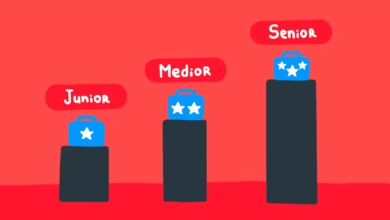Should You Learn MVC or Jump Straight into API in .NET?

If you’re just starting out in application development using .NET, you’ve probably asked yourself this common question:
“Should I begin with MVC or dive directly into building APIs?”
It’s a question many beginners face, but the truth is—starting with MVC is the better choice. Let’s break down why, in a simple and clear way.
What is MVC?
MVC stands for Model-View-Controller, a design pattern that separates an application into three main components:
-
Model: Handles data and business logic.
-
View: Responsible for displaying data to the user through the interface.
-
Controller: Acts as a bridge between the Model and the View—it processes incoming requests and sends the appropriate response.
In short, MVC helps organize your code, making each part of your app more maintainable and structured.
What is an API?
An API (Application Programming Interface) is a way for applications to communicate with one another.
In the .NET world, we use Web API to build services that send and receive data—usually in JSON format—making it ideal for mobile apps, front-end frameworks, and external systems.
Why Start with MVC First?
1. It Teaches You the Fundamentals of Application Structure
Learning MVC first gives you a strong foundation in key software development concepts like:
-
Structuring your code into logical, clean components
-
Connecting and interacting with databases
-
Handling user requests and responses
These fundamentals are essential for any future project you’ll work on, including APIs.
2. You’ll Understand Core Concepts Shared by MVC and API
Both MVC and API in .NET share important concepts, such as:
-
Routing – Managing how requests are directed through your app
-
Model Binding – Mapping data from user input into backend models
-
Dependency Injection – Managing dependencies and services efficiently
Starting with MVC helps you understand these in a more visual and practical way.
3. You Learn How to Work with Data Early On
With MVC, you’ll work directly with databases using tools like Entity Framework.
You’ll learn how to:
-
Add new data
-
Edit existing records
-
Delete entries
-
Retrieve and display information
These skills are just as important when building APIs.
4. Transitioning to API Becomes Much Easier
Once you’re confident with MVC, moving to API development becomes a natural step. You’ll already know how to:
-
Build RESTful services
-
Implement Authentication & Authorization
-
Handle requests/responses and status codes properly
So instead of starting from scratch, you’ll build on solid, existing knowledge.
5. You’ll Better Understand Frontend Needs
MVC teaches you to think in terms of user interfaces—what the user sees and interacts with.
This helps a lot when you move to building APIs because you’ll understand what frontend applications expect from your API, and how to design your endpoints accordingly.
Simple Example
Let’s say you’re building an eCommerce application.
-
Your first task might be to build an Admin Dashboard using MVC, allowing product management (add, edit, delete).
-
Later, when building a mobile app or exposing this data to another service, you’d create an API to serve the same data.
By starting with MVC, you gain full understanding of the business logic, which makes it much easier to build a well-structured API later.
Final Thoughts
Starting your .NET journey with MVC gives you a powerful foundation for everything that comes after.
You’ll learn:
-
How to organize your code
-
How to manage and process data
-
How to build real-world applications from the ground up
So when it’s time to build APIs, it’ll feel like a natural progression—not a new world.
Take it one step at a time, focus on the fundamentals, and you’ll become a .NET pro before you know it.




